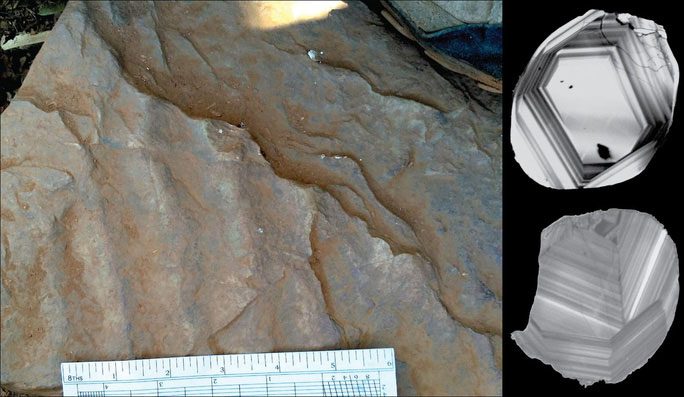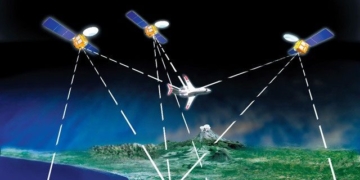A new study has pushed back the appearance of the first continent by hundreds of millions of years, revealing a strange and mysterious emergence from the ocean.
The research, recently published in the scientific journal PNAS, confirms that the Earth had its first continent between 3.2 and 3.3 billion years ago, based on “sedimentary rock pockets” found in India and Australia. Previously, it was believed that continents did not form until about 2.5 billion years ago.

One of the ancient rock samples studied – (Photo: Monash University)
According to SciTech Daily, scientists led by Dr. Priyadarshi Chowdhury from the School of Earth at Monash University (Australia) determined that the sedimentary rocks from the two sites are from the same period. To date these rocks, they searched for tiny crystals known as zircons, which contain the radioactive element uranium.
The process of laser scanning the zircons reveals their chemical composition through a technique called mass spectrometry to examine the ratio of uranium to lead. By analyzing the ratio of uranium decaying into lead, the age of the rocks is revealed. This indicates that the rocks in India and Australia have “witnessed the world” from 3.2 to 3.3 billion years ago!
However, according to Live Science, the strange part is that at that time, the Earth did not yet have modern plate tectonics. So, what allowed the first continent to break through the ancient ocean?
To answer this question, scientists constructed a computer model based on geological and paleontological data, recreating the conditions that led to the formation of these mysterious landmasses and their journey through the ocean.
The model shows that around 3.5 to 3.2 billion years ago, magma plume clusters beneath the planet’s crust caused parts of the craton – the primordial continental plates – to thicken, becoming rich in light materials like silica and quartz. This made them “physically thick and chemically light” compared to the surrounding dense rock, gradually causing the entire mass to rise above the water.
The site where traces of early continents were found in India is an area known as Singhbhum Craton; there is also the Kaapvaal Craton in South Africa and the Pilbara Craton in Australia. All of these are at least 3 billion years old, although it remains unclear which one represents the first continent.


















































